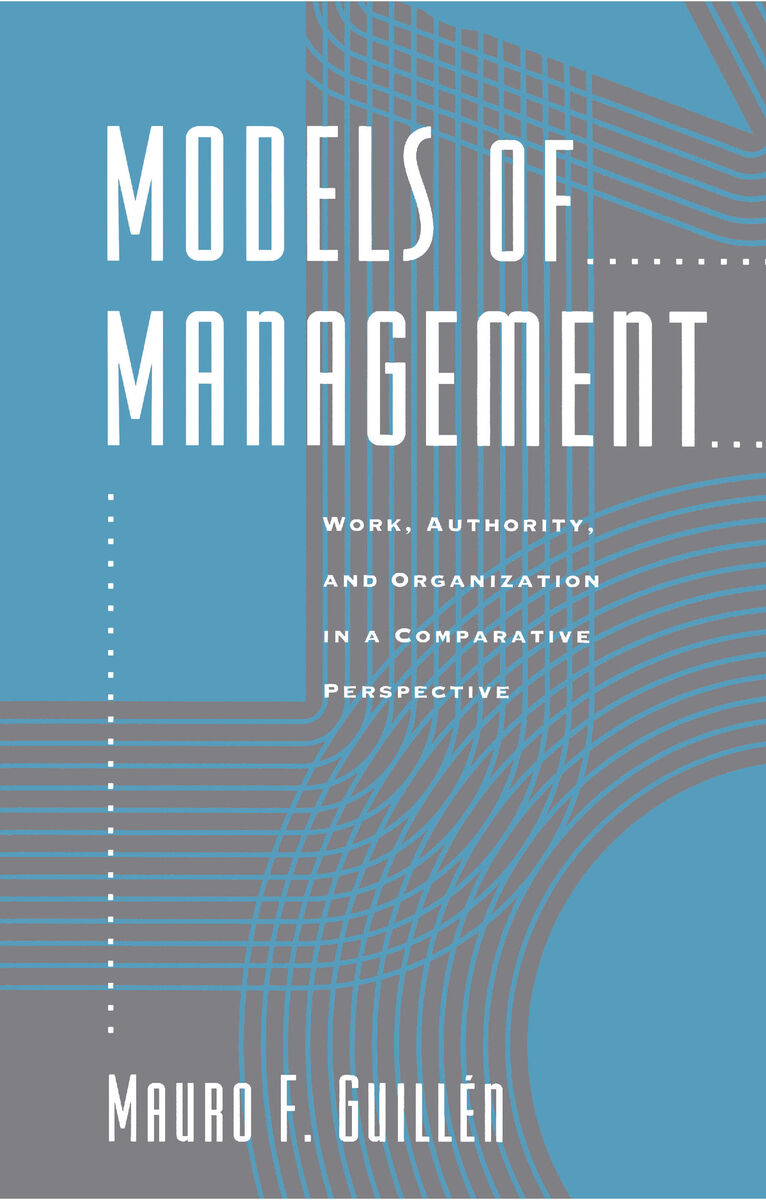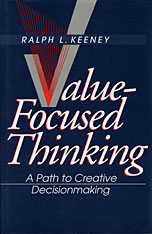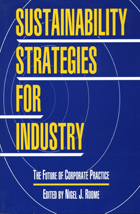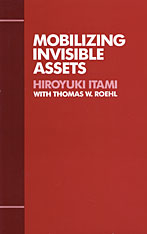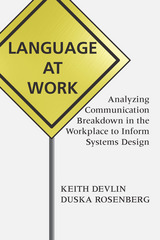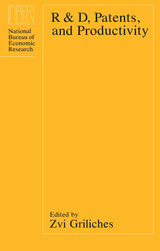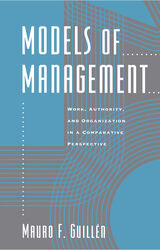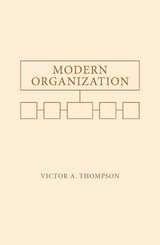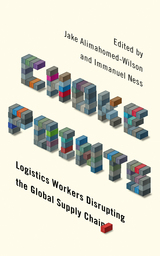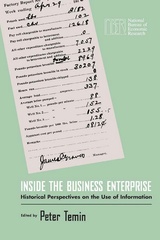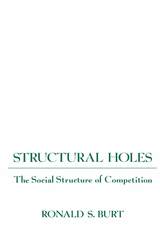Models of Management: Work, Authority, and Organization in a Comparative Perspective
University of Chicago Press, 1994
Cloth: 978-0-226-31035-0 | Paper: 978-0-226-31036-7
Library of Congress Classification HD30.55.G85 1994
Dewey Decimal Classification 658
Cloth: 978-0-226-31035-0 | Paper: 978-0-226-31036-7
Library of Congress Classification HD30.55.G85 1994
Dewey Decimal Classification 658
ABOUT THIS BOOK | TOC | REQUEST ACCESSIBLE FILE
ABOUT THIS BOOK
In this book, Mauro F. Guillén explores differing historical patterns in the adoption of the three major models of organizational management: scientific management, human relations, and structural analysis. Moving beyond Reinhard Bendix's classic Work and Authority, Models of Management takes a fresh look at how managers have used these models in four countries during the twentieth century.
Guillén's study of two liberal-democratic societies (the United States and Great Britain) and two corporatist societies (Germany and Spain) reveals significant differences in the way managerial elites and firms have adopted the three models. His data show that ideas themselves—independent of material interests and technology—can cause organizational change. Throughout the book, contrasts between modernist-technocratic and liberal-humanist mentalities, as well as between Protestant and Catholic religious backgrounds, emerge as decisive factors in determining managerial ideology and practice.
In addition to analyzing management methods in organizations, Guillén explores larger issues: the interaction among managerial, government, and labor elites; the impact of the state and the professions on managerial behavior; and the role that managers play in modern societies.
Guillén's study of two liberal-democratic societies (the United States and Great Britain) and two corporatist societies (Germany and Spain) reveals significant differences in the way managerial elites and firms have adopted the three models. His data show that ideas themselves—independent of material interests and technology—can cause organizational change. Throughout the book, contrasts between modernist-technocratic and liberal-humanist mentalities, as well as between Protestant and Catholic religious backgrounds, emerge as decisive factors in determining managerial ideology and practice.
In addition to analyzing management methods in organizations, Guillén explores larger issues: the interaction among managerial, government, and labor elites; the impact of the state and the professions on managerial behavior; and the role that managers play in modern societies.
See other books on: Authority | Comparative Perspective | Models | Organization | Organizational sociology
See other titles from University of Chicago Press
